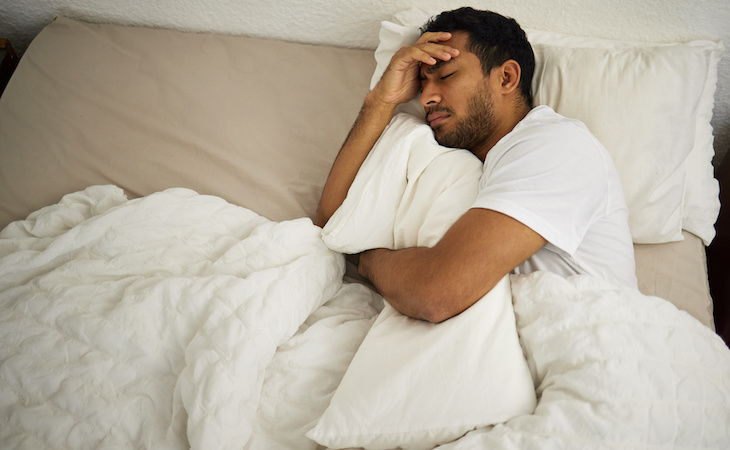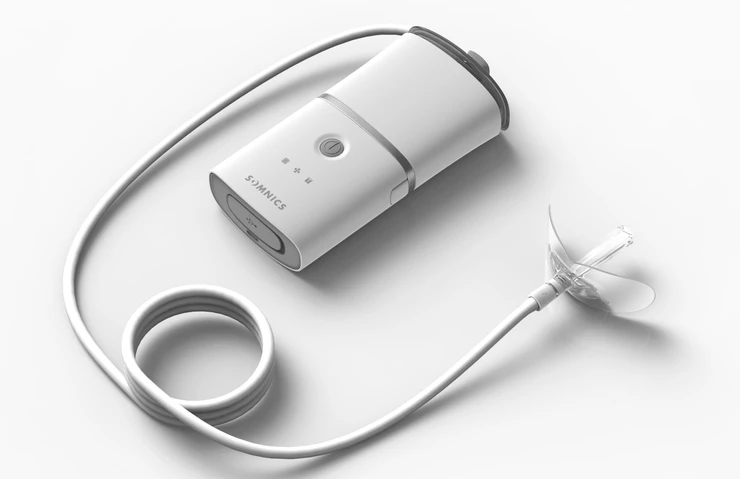Efficient Insomnia Therapy - Restore Your Restful Nights
Efficient Insomnia Therapy - Restore Your Restful Nights
Blog Article
Reliable Therapy Solutions for Managing Sleep Disorders and Enhancing Peaceful Rest
In the world of medical care, the monitoring of sleep conditions and the pursuit for peaceful rest are critical elements of total wellness. As we navigate the detailed landscape of rest problems and seek to enhance our rest experience, a deeper understanding of these therapy remedies may hold the trick to opening an extra relaxing and satisfying restorative journey.
Cognitive Behavior Therapy for Insomnia (CBT-I)
Cognitive Behavior Modification for Sleeplessness (CBT-I) is an organized, evidence-based therapy technique that concentrates on dealing with the hidden factors adding to sleep disruptions. This type of treatment aims to change habits and ideas that aggravate insomnia, ultimately advertising healthy and balanced sleep patterns. CBT-I commonly includes a number of crucial elements, consisting of cognitive therapy, sleep limitation, stimulation control, and sleep hygiene education and learning.
Cognitive therapy assists people determine and change unfavorable thought patterns and beliefs about sleep that may be impeding their capacity to fall or remain asleep. Rest constraint includes restricting the quantity of time spent in bed to match the person's real sleep duration, consequently boosting rest performance (sleep improvement therapy). Stimulation control methods assist develop a solid organization between the bed and rest by urging people to head to bed just when drowsy and to stay clear of taking part in promoting tasks in bed
Additionally, sleep health education concentrates on establishing healthy sleep practices, such as maintaining a constant sleep schedule, developing a relaxing bedtime regimen, and optimizing the sleep setting. By dealing with these elements adequately, CBT-I provides an effective non-pharmacological treatment for managing sleeping disorders and boosting general rest high quality.
Sleep Hygiene Practices
Having developed the structure of cognitive restructuring and behavioral alterations in dealing with sleep problems via Cognitive Behavioral Therapy for Sleep Problems (CBT-I), the emphasis now moves in the direction of checking out crucial Rest Hygiene Practices for keeping optimum rest top quality and total wellness.
Rest health practices incorporate a series of practices and ecological elements that can significantly influence one's ability to sleep and remain asleep throughout the evening. Regular rest and wake times, creating a relaxing bedtime routine, and enhancing the rest environment by keeping it dark, peaceful, and cool are essential components of good rest hygiene. Limiting direct exposure to screens before bedtime, avoiding energizers like high levels of caffeine near going to bed, and involving in regular exercise during the day can likewise advertise far better sleep top quality.
Additionally, exercising relaxation strategies such as deep breathing exercises or reflection prior to bed can assist calm the mind and prepare the body for rest. By incorporating these rest hygiene methods right into one's daily regimen, people can develop a healthy sleep pattern that supports relaxing sleep and total well-being.
Relaxation Strategies and Mindfulness
Implementing leisure techniques and mindfulness techniques can play a crucial function in cultivating a feeling of tranquility and advertising top quality rest. Furthermore, guided images can assist transfer individuals to a tranquil area in their minds, aiding in tension decrease and enhancing rest top quality.
Mindfulness techniques, such as meditation and yoga, are also efficient in promoting relaxation and boosting rest. Mindfulness encourages people to remain present in the minute, releasing stress over the past or future. By integrating these techniques right into a bedtime routine, people can signify to their bodies that it is time to prepare and unwind for rest. Generally, integrating leisure strategies and mindfulness methods can considerably add to handling rest conditions and improving total rest top quality.

Medication Options for Rest Disorders
After checking out leisure strategies and mindfulness methods as non-pharmacological home interventions for boosting sleep high quality, it is necessary to think about medicine options for individuals with rest problems. In cases where way of life modifications and therapy do not give enough alleviation, medicine can be a beneficial device in managing sleep disturbances.
Generally recommended medications for rest disorders consist of benzodiazepines, non-benzodiazepine hypnotics, antidepressants, and melatonin receptor agonists. Benzodiazepines, such as diazepam, are sedatives that can assist generate rest, but they are typically advised for short-term use due to the danger of dependancy. Non-benzodiazepine hypnotics like zolpidem are likewise utilized to treat sleeplessness and have a lower threat of dependancy contrasted to benzodiazepines. Antidepressants, such as trazodone, can be valuable for individuals with co-occurring clinical depression and rest disruptions. Melatonin receptor agonists, like ramelteon, target the body's all-natural sleep-wake cycle and can be valuable for managing sleep patterns.
It is vital for individuals to talk to a health care service provider to establish the most appropriate drug option based upon their certain sleep disorder and clinical background.
Light Therapy for Body Clock Law
Light treatment, additionally known as photo-therapy, is a non-invasive therapy method made use of to control body clocks advice and enhance sleep-wake cycles. This therapy involves exposure to intense light that mimics natural sunlight, which aids to reset the body's biological rhythm. By exposing individuals to specific wavelengths of light, commonly in the early morning or night depending upon the desired result, light treatment can properly adjust the body clock to promote wakefulness throughout the day and enhance restful rest in the evening.
Research study has shown that light therapy can be specifically valuable for people with circadian rhythm conditions, such as delayed sleep stage syndrome or jet lag. It can also be helpful for those experiencing seasonal depression (SAD), a sort of clinical depression that generally occurs throughout the winter months when natural light direct exposure is reduced. Light treatment is typically well-tolerated and can be made use of rhythmic movement disorder treatment along with other therapy methods for rest conditions to enhance outcomes and boost general rest high quality.
Conclusion
Finally, reliable therapy remedies for managing sleep problems and boosting peaceful sleep include Cognitive Behavior modification for Sleeping Disorders (CBT-I), sleep health methods, relaxation methods and mindfulness, medicine alternatives, and light treatment for circadian rhythm policy. These strategies can assist people enhance their sleep high quality and overall health. It is essential to speak with a healthcare copyright to determine one of the most appropriate method for addressing rest issues.
As we browse the complex landscape of sleep disorders and look for to improve our rest experience, a much deeper understanding of these treatment services may hold the secret to opening a much more refreshing and satisfying corrective trip.
Sleep limitation includes limiting the quantity of time spent in bed to match the person's real sleep duration, consequently raising sleep performance. Constant sleep and wake times, producing a relaxing bedtime routine, and optimizing the rest environment by keeping it dark, quiet, and cool are critical elements of good sleep hygiene. Light treatment is normally well-tolerated and can be used in combination with various other therapy techniques for sleep problems to maximize end results and boost overall rest high quality.

Report this page